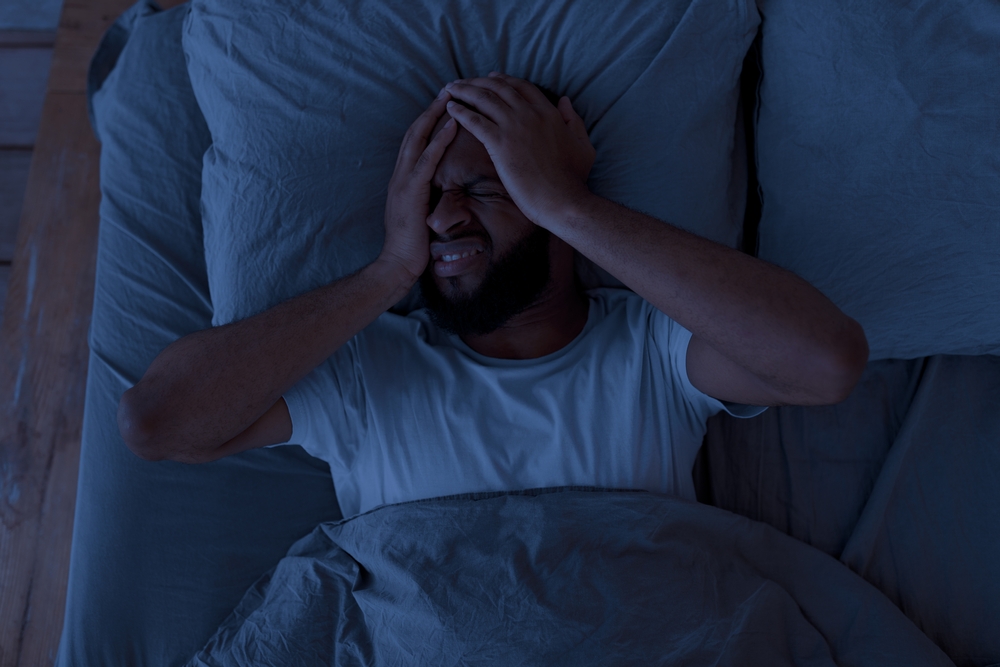That familiar burning sensation in your chest always seems to strike at the worst possible moment – just as you’re trying to drift off to sleep. Medical experts explain the timing of heartburn isn’t just bad luck. Your sleep position plays a crucial role in triggering these uncomfortable acid reflux episodes.
The gravity problem
During the day, standing or sitting upright naturally helps keep stomach acid where it belongs. But gastroenterologists point out that lying down removes this natural protection. Without gravity’s help, acid can more easily flow back into your esophagus, creating that burning sensation that keeps you awake.
Your body’s natural barriers
Inside your body, a small ring of muscle called the lower esophageal sphincter (LES) acts as a one-way valve between your stomach and esophagus. Medical experts explain that this muscle should stay tightly closed to prevent acid from flowing backward. However, certain positions and activities can cause it to relax at the wrong time.
What happens when you lie down
When you recline, your stomach contents shift position. Even a small amount of acid escaping past your LES can cause significant discomfort. Doctors note that this problem becomes worse if you’ve eaten recently, as your stomach contains more acid during digestion.
Food choices matter
Certain foods make nighttime heartburn more likely. Medical professionals identify several common triggers that can relax your LES or increase acid production. These effects become more noticeable when you lie down shortly after eating these foods.
The timing trap
Eating too close to bedtime often leads to nighttime heartburn. Your body needs time to process food before you lie down. Gastroenterologists recommend allowing sufficient time between your last meal and sleep to reduce acid reflux risk.
Your sleeping position
The way you position yourself in bed can significantly impact heartburn symptoms. Medical experts explain that certain sleep positions help keep acid where it belongs, while others make reflux more likely.
The pillow problem
Many people try using extra pillows to prop themselves up, but doctors warn this approach often fails. The wrong angle can actually increase pressure on your stomach, making heartburn worse instead of better.
Weight and pressure
Carrying extra weight, especially around your midsection, puts additional pressure on your stomach. Medical professionals note this pressure increases when lying down, potentially forcing acid upward into your esophagus.
Clothing choices
Tight clothing, particularly around your waist, can compress your stomach. This effect becomes more pronounced when lying down, potentially triggering or worsening heartburn symptoms.
Stress and sleep
Anxiety and stress can increase acid production and make heartburn more likely. Medical experts observe that nighttime often brings increased worry, potentially contributing to acid reflux problems.
The pregnancy connection
Pregnant women often experience increased heartburn, especially at night. Doctors explain this results from hormonal changes and growing pressure on the stomach as the baby develops.
Hidden triggers
Some medications can increase your risk of nighttime heartburn. Medical professionals recommend reviewing your medication schedule and discussing timing with your healthcare provider.
When to worry
While occasional heartburn proves common, frequent nighttime episodes might indicate a more serious condition. Gastroenterologists advise seeking medical evaluation if heartburn regularly disrupts your sleep.
Prevention strategies
Medical experts recommend several approaches to prevent nighttime heartburn. These strategies focus on managing both your daily habits and your sleep environment.
Dietary adjustments
Making smart food choices, especially in the evening, can significantly reduce your risk of nighttime heartburn. Doctors suggest focusing on foods less likely to trigger acid reflux.
Timing matters
Planning your meals with sleep in mind helps prevent nighttime heartburn. Medical professionals recommend specific timing guidelines to reduce your risk of reflux while sleeping.
Sleep position solutions
Adjusting how you sleep can make a significant difference in preventing nighttime heartburn. Doctors recommend specific positions and support methods to keep acid where it belongs.
Creating healthy habits
Developing routines that support digestive health can help prevent nighttime heartburn. Medical experts emphasize the importance of consistent habits for managing acid reflux.
Remember, while nighttime heartburn proves common, you don’t have to accept it as inevitable. Understanding the connection between your sleep position and acid reflux helps you take control of your symptoms, leading to more restful nights and healthier days.












